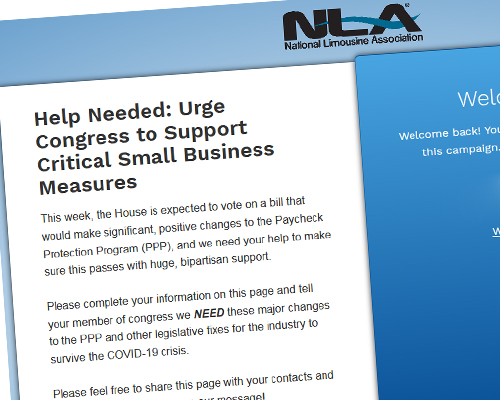- Details
- Category: Industry News
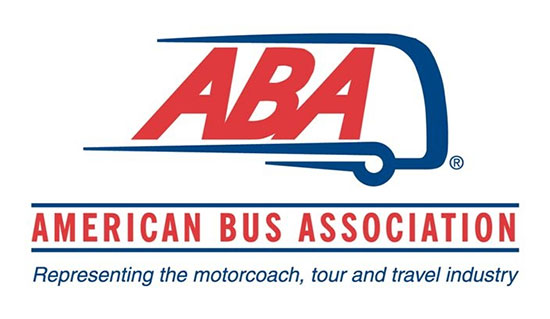
On May 27, the House passed H.R. 7010, the Paycheck Protection Program Flexibility Act of 2020, which offered some new guidelines for loan forgiveness eligibility. The bill changes some important components of the PPP to allow businesses more flexibility with the amount spent on payroll and benefits, as well as extending the critical eight-week window for spending the funds. The American Bus Association (ABA), one of many organizations that has been pushing public officials for reforms, responded to the passing of the House bill.
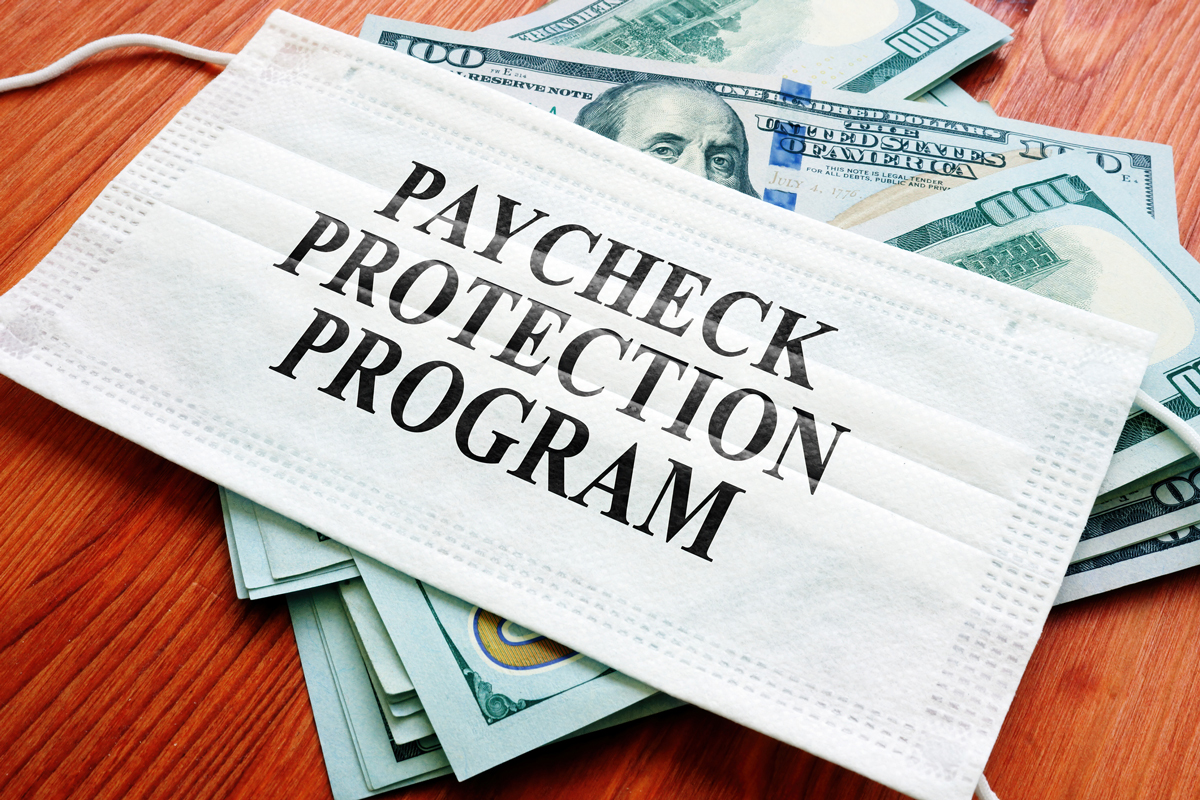
"We appreciate the House taking this action and recognizing the hardship small businesses are facing, particularly for those who did not fully understand their obligations after initially accepting funds under the PPP,” said ABA President & CEO Peter Pantuso. “By extending the original loan coverage period to 24 weeks, rather than the original eight weeks, and extending the deadline for rehiring workers till the end of the year, the legislation can help some businesses in terms of eligibility for loan forgiveness. But there are many transportation-related businesses who have not received or qualified for PPP money, or who won’t qualify for loan forgiveness, and their struggle for survival during this pandemic continues. We need Congress to do more. As the traveling public remains at home, with businesses and schools shuttered, and the prospect of public transportation on hold for the foreseeable future, these essential transportation businesses cannot hold out without additional help from Congress, just like the other transportation modes received. The private motorcoach industry needs $15 billion in grants and loans to keep moving America when citizens are ready and able to travel again."
Although H.R. 7010 has passed the House, the Senate is currently considering its own bill, which is expected to be voted on this week. There are critical differences in the two chambers’ bills, including maintaining the 75 percent threshold for salaries and benefits in the Senate bill.
Visit buses.org for more information.
[06.01.20]
- Details
- Category: Industry News
Last week, the National Limousine Association (NLA) put out a call to action to its members to reach out their congressional representatives in support of proposed changes to the Paycheck Protection Program. In less than a week, NLA President Robert Alexander of RMA Worldwide reported that they had seen more than 1,800 responses. In a process that takes only about a minute to complete, members are connected to their representatives.
The PPP has been a lifeline for numerous small business nationwide, although it has been a bit imperfect in how it applies to our industry. The chief issues regarding forgiveness eligibility have been the eight-week period for usage of funds and the requirement of spending 75 percent on salaries and benefits.
But good news: The House passed its version of reforms in the Paycheck Protection Program Flexibility Act of 2020 (H.R. 7010) on May 27, which could offer the following relief:
- Reducing 75/25 ratio (payroll/utilities and rent) to 60/40 for more flexibility with loan forgiveness
- Extending deadline to rehire from June 30 to Dec. 31
- Increasing loan maturation from two years to five years
- Extending the covered period for forgiveness from eight weeks from the date of origination to the earlier of 24 weeks from the origination date or December 31, 2020
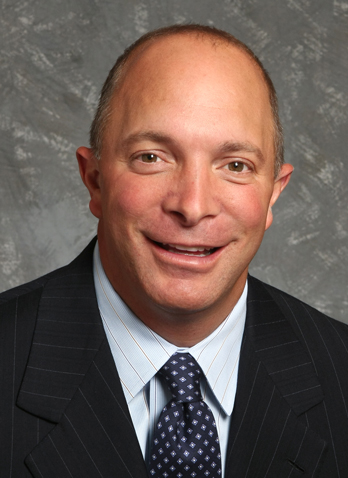 NLA President Robert Alexander
NLA President Robert Alexander
The Senate is considering its own version of the bill, which is expected to be voted on this week. Vitally, the Senate bill does not include the modified 60/40 ratio, so more work is needed.
“While that is a great initial push, it is vital that as many people as possible use this tool to help make our collective industry voice even louder,” Alexander wrote in his weekly President’s Letter to members. “If you have already shared our requests with your representatives, it is greatly appreciated. I hope you have shared this call to action on your social media and with your colleagues, affiliates, and employees.”
The link to the call to action is available here.
The NLA also has an extensive COVID-19 resource page, including near daily updates on legislative efforts through its lobbying firm Cornerstone Government Affairs, available here.
[06.01.20]
- Details
- Category: Industry News
By Matt Daus
Municipalities across the world are facing the same problems during the COVID-19 pandemic, and deciding where the government regulator needs to step in to mandate new public health and safety requirements is a question on everyone’s mind. The most effective help for transportation providers and drivers is financial relief and assistance, yet unfortunately, many transportation agencies do not even have the power to solve some of these pressing issues, such as obtaining grants and loans, or insurance premium refunds. They can, however, can lend a helping hand to waive fees and reduce costly red-tape and cumbersome licensing processes.
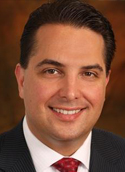 IATR President Matt Daus
IATR President Matt Daus
On April 30, 2020, hundreds of regulators and industry members from around the world attended the International Association of Transportation Regulators’ (IATR’s) COVID-19 webinar. IATR is currently drafting best practices and regulations that act as a guide for regulators around the world to implement and has convened a task force to help craft a plan for long- and short-term needs. A recap of the meeting, featuring an all-star panel that included Robert Alexander of the NLA, Peter Pantuso of the American Bus Association (ABA), and Tom Arrighi of The Transportation Alliance (TTA), can be read here. The webinar provided a snapshot of the various initiatives taken by agencies happening around the world, including notable actions from agencies in major U.S. cities. The full webinar is available here.
Federal Motor Carrier Safety Administration (FMCSA): FMCSA Acting Administrator Jim Mullen explained that Electronic Logging Device (ELD) requirement exemptions are extended to drivers who use short-haul, timecard exemptions, drivers conducting a drive-away-tow-away operation, and drivers of vehicles manufactured before the model year 2000. The FMCSA has been working with FEMA and the Department of Homeland Security (DHS) to distribute 1 million cloth masks to drivers at state rest areas in the U.S. and directly through the largest motor carriers. As states or regions begin to reopen, the FMCSA may issue declarations that are regional or state-based, but will likely defer to CDC guidelines regarding vehicle cleanliness, face coverings, and temperature checks and not issue its own guidance (no final decision has yet been made yet).
New York City: Newly appointed New York City Taxi & Limousine Commission (TLC) Commissioner Aloysee Heredia Jarmoszuk said that TLC has coordinated a massive informational campaign, assisting licensees with applications for NYC small business assistance programs and providing them with information on other public assistance programs, including food assistance, unemployment, and mental health programs. The TLC also created an innovative TLC food delivery program called “Get Food NYC,” which has recruited drivers for food delivery services at $53 per delivery route ($40 for the six food deliveries in each route, plus $13 for fuel. The program has helped provide income to struggling drivers through public service and has coordinated the delivery of more than 9 million meals as of April 30.
Washington, D.C.: David Do, director of the D.C. Department of For-Hire Vehicles (DFHV), indicated that taxi trips are down 96 percent, and TNC trips are down 84 percent, since March 2020. To combat the massive dip in ridership, DFHV has focused on providing income to struggling drivers by repurposing its microtransit program to provide trips to hospital workers in partnerships with taxi companies and Via for a $3 fare. Similar to NYC, DFHV is facilitating more work for struggling drivers by allowing them to sign up with commercial food delivery companies while collaborating with the D.C. Department of Health and the D.C. Department of Aging and Community Development to subsidize their food delivery programs with more drivers.
Chicago: Rupal Bapat, deputy commissioner of the Chicago Department of Business Affairs and Consumer Protection (BACP), discussed a $100 million loan program that provided COVID-19 relief to small businesses. Additionally, Chicago implemented financial support specifically geared towards wheelchair accessible transportation services, and eliminated the passenger portion of all paratransit taxicab fares as a way to encourage ridership. BACP also partnered with Uber and Lyft to provide free rides to victims fleeing domestic violence.
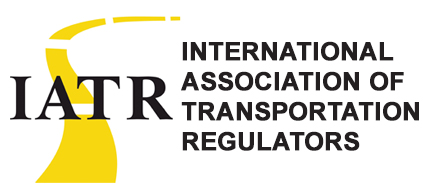
Los Angeles: Policy & Enforcement Administrator Jarvis Murray of the Los Angeles Department of Transportation (LADOT) spoke of his agency’s focused response on Non-Emergency Medical Transportation (NEMT) taxicabs. Assisting those with medical and physical needs has been a priority for many agencies during the pandemic; LADOT has taken action to streamline vehicle additions and driver permitting for ambulance companies as this sector has remained busy, but employee retention has been a struggle during the pandemic.
IATR Survey: IATR also recently conducted a regulator survey, which included almost every major city and/or state in the U.S. and Canada. Among the key findings:
Operational Relief Measures
- 73 percent of respondents indicated their offices had closed, allowing employees to work from home. As agencies closed their offices, licensing procedures become increasingly difficult to manage.
- 64 percent reported relief measures for licensees, including measures taken for licensing, which included the extension of licenses, online license renewals, and termination of municipal licensing services during the pandemic.
- 45 percent of agencies also deferred fees to provide relief to licensees in their respective jurisdictions. Enforcement, however, has drastically decreased throughout the entire industry.
- 37 percent indicated they have suspended all enforcement measures
- 17 percent have stopped enforcement measures taken concerning insurance
- 18 percent reported increased enforcement on overcharging
- 27 percent reported increased enforcement of “clean vehicle” rules
Shared Mobility
- 60 percent reported that they have not discouraged, banned, or limited group riding or ridesharing services
- 7 percent have officially banned ridesharing
- 33 percent have discouraged it
Driver Health & Safety
- 87 percent reported that licensed drivers are cleaning vehicles before and after trips, or in-between trips
- 80 percent of those reported that drivers are bringing their own cleaning supplies
IATR has a COVID-19 resource page, which is available here.
Matt Daus is a partner with law firm Windels Marx and the former commissioner of the New York City Taxi & Limousine Commission. He can be reached at mdaus@windelsmarx.com.
[06.01.20]


